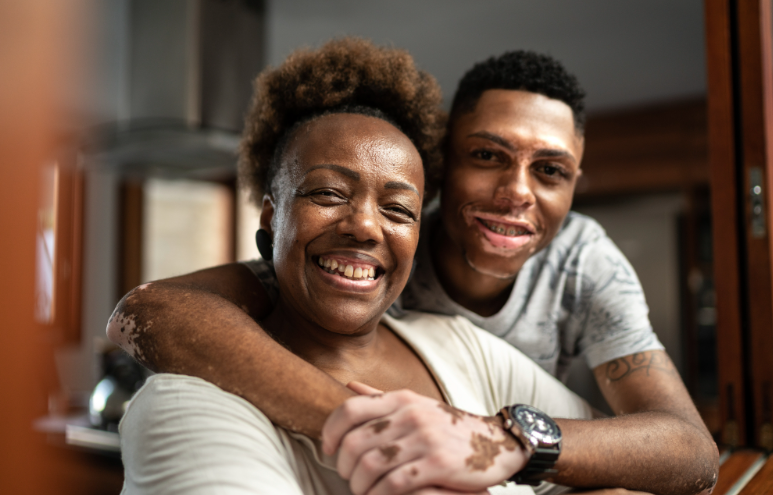Mothers seek authenticity in the visual content of the products they consume and in advertisements on television, social networks and even OOH media. Brazilian motherhood is multiple and, if recognized in media spaces, it is part of the search for more representation in the market. People who choose to be mothers, alone or with a partner, also expect their stories to be told, based on bodies and different family constructions.
A survey carried out by the agency Solo Propaganda in 2018 analyzed the habits and preferences among pregnant women. According to the study, around 83% of people interviewed with children or pregnant women believe that advertising campaigns should show an authentic portrayal of reality, with the mother and all the diversity of her experiences in the spotlight. Among all sectors, fashion was identified as the one that most needs representation, whether in advertisements or products, for around 44% of those interviewed.
From postpartum pressure to breastfeeding or exercising during pregnancy, some brands are following suit with more realistic depictions of Brazilian motherhood. Still, between the myth of a perfect mother and the guilt of taking time to have out-of-this-world experiences, it’s important to see a variety of real stories that inspire and resonate with women.
One of the most sensitive brands when creating campaigns for important dates, O Boticário portrayed the different feelings, anxieties and challenges of royal motherhood in its film “Mother’s Day: those who love also need love“, launched last year by AlmapBBDO. By portraying the diverse experiences of Brazilian motherhood, the beauty brand got closer and identified with mothers and their trajectories.
According to the VisualGPS survey, carried out by Getty Images & iStock, theAlthough the pandemic has pressured women to do even more household chores and expand family care, it has also added another layer to the changing visual landscape by redefining priorities: 9 out of 10 Brazilian women now think it is just as important to take care of themselves emotionally and physically.
Furthermore, 90% of women around the world seek to celebrate the good things in life, be it family life, tourism, self-care or work. After all, we mothers also deserve to enjoy a rich and joyful life – and advertising needs to remember that.
The Getty Images & iStock study also showed that women, regardless of whether they are mothers or not, are more likely to suffer prejudice regarding their body shape, type or size, and this feeling is even stronger among younger Brazilian women. In a world where our understanding of postpartum bodies is heavily pressured by before/after bodily transformations seen on social media, filters and aesthetic procedures, inclusive visual representation has the power to go against this problem.
To empower and value the history and beauty of the most different types of mothers, brands can show the reality of postpartum life from different body types, with or without the marks of this entire process. By showing the possibilities, strength and shape of female bodies, advertisers can challenge social stigmas and increase women’s confidence to feel represented in real Brazilian motherhood.
Visual content can also feature images that show the positive emotional rewards of pregnancy and postpartum activities, such as connecting with other mothers through different experiences, going to a class together, or going to the park. This brings these women closer to brands and proposes a new perspective.
Because motherhood is a lifelong journey, brands have the opportunity to expand the stories of this period and include scenarios that portray mothers of all ages, races, abilities, disabilities and body types with the aim of portraying the beauty of motherhood for an even wider audience.
To discover authentic photos and videos about Brazilian motherhood, access this iStock gallery.
Follow Adnews on Instagram e LinkedIn. #WhereTransformationHappens






